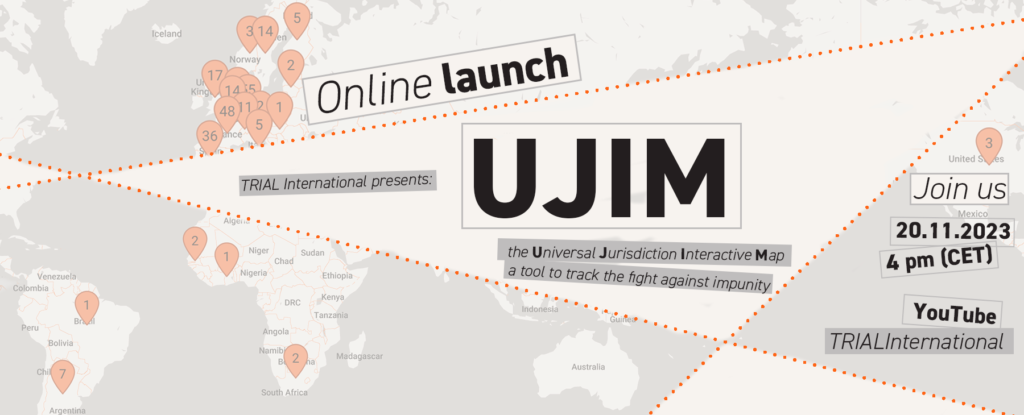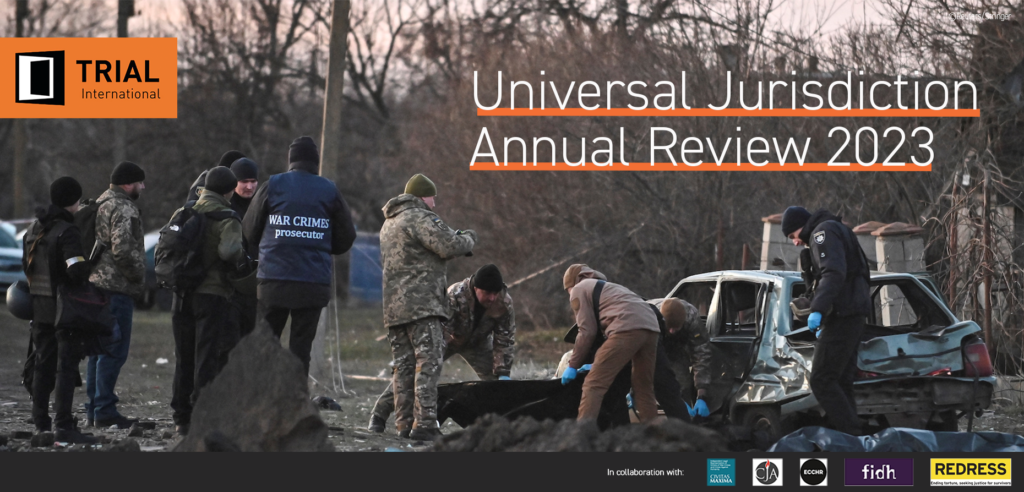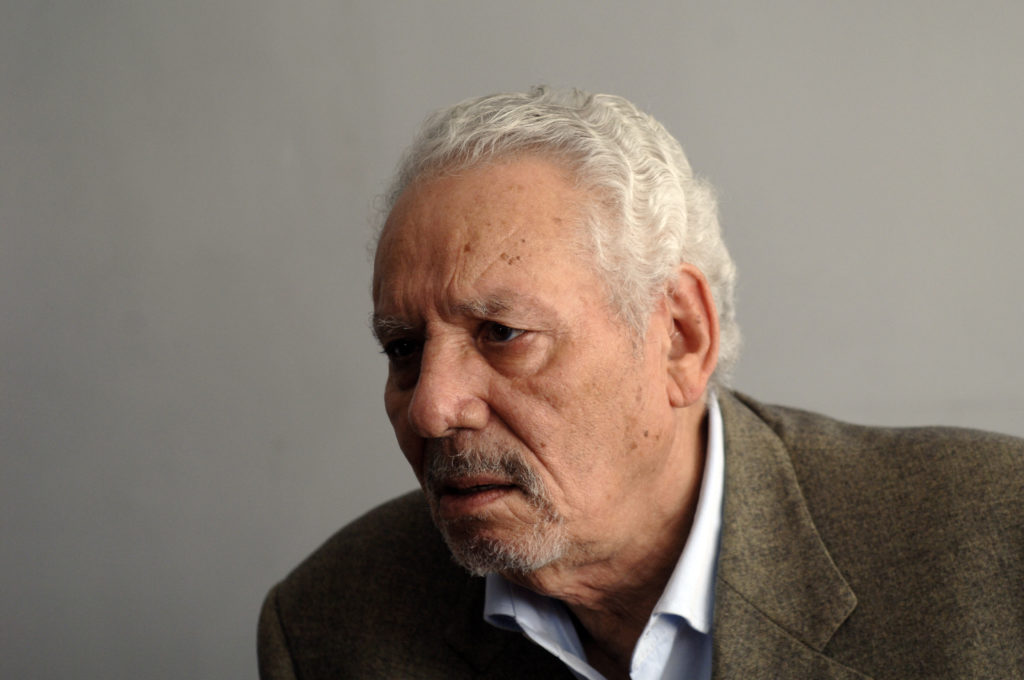EU: Bolster Justice Efforts Worldwide
EU: Bolster Justice Efforts Worldwide
EU Day Against Impunity Highlights Prospects, Challenges
(Brussels, May 23, 2022) – The European Union (EU) and its member states should take concrete steps to strengthen the international justice system, including through national prosecutions of crimes under international law, 10 human rights groups said today. Member states should expand the reach of justice by adopting necessary laws, creating or reinforcing specialized war crimes units, strengthening cooperation among states, and providing greater financial and political support to the International Criminal Court (ICC) and other accountability mechanisms so they can impartially carry out their work.
The civil society organizations are Amnesty International, the Center for Justice and Accountability (CJA), Civitas Maxima, the European Centre for Constitutional and Human Rights (ECCHR), the International Federation for Human Rights (FIDH), Human Rights Watch, the Open Society Justice Initiative (OSJI), REDRESS, and TRIAL International. The Coalition for the International Criminal Court, of which these groups are members, also endorsed the statement. The groups issued this statement on the European Union Day Against Impunity, observed in The Hague on May 23, 2022, and organized by the French presidency of the Council of the EU, together with the European Commission, the EU Genocide Network, and Eurojust.
“This year’s EU Day Against Impunity shines a spotlight on the fact that much more is needed to effectively address grave human rights violations around the world,” said Balkees Jarrah, interim international justice director at Human Rights Watch. “EU countries should work together to extend principled support for accountability for atrocities not just in Ukraine but in other conflicts where civilians suffer widespread abuses.”
Since Russia’s full-scale invasion of Ukraine in February, EU countries and other governments have worked to engage a range of accountability tools to ensure the prosecution of grave crimes committed in the context of that conflict. The EU has also made clear that it supports all measures to ensure justice for serious crimes, wherever they take place. The European Union and its member states should build on this unprecedented support for accountability for crimes committed in Ukraine to strengthen the cause of justice worldwide, the human rights groups said.
Governments and international judicial bodies have initiated a number of accountability efforts in response to the crimes in Ukraine. On March 2, the International Criminal Court (ICC) prosecutor announced the opening of a formal investigation following the request of a group of ICC member countries. Authorities in countries including France, Germany, Lithuania, Poland, and Sweden have opened their own criminal investigations under the principle of universal jurisdiction. On March 4, the UN Human Rights Council voted to establish an international commission of inquiry to document war crimes and human rights abuses. The EU has expressed its support for all of these mechanisms to investigate and gather evidence of war crimes and crimes against humanity in Ukraine.
Following his decision to open a Ukraine investigation, the ICC prosecutor called on the court’s member countries to provide his office with resources to support its work across all situations under investigation at the court through voluntary contributions and gratis personnel. Several EU member countries have since announced that they will provide the court with additional financial and human resources outside the ICC’s regular budget.
While the positive response of ICC member countries to the prosecutor’s request signals a commitment to justice, it also reflects an acknowledgment that the court does not have the resources necessary to fulfill its mandate, the groups said. The making of these recent pledges by ICC member countries in the context of one specific situation also risks perceptions of politicization and selectivity in the court’s work, which could undermine its legitimacy.
ICC member countries should adopt a principled approach to ensure that the court has long-term funding and sufficient resources in the context of its regular budget to prosecute serious crimes effectively and independently across all its organs, programs, and activities.
With the Ukraine investigation, the number of open country situations under investigation before the court has risen to 16 – including an investigation into crimes committed during the 2008 war in Georgia . Other ongoing investigations relate to serious international crimes committed around the world, including in Bangladesh/Myanmar, Sudan, and Palestine.
“The fact that the court’s workload has outpaced its resources is nothing new: this is an institutional problem that requires an institutional solution by bolstering the court’s regular budget, rather than relying on voluntary contributions,” said Melinda Reed, acting convener of the coalition for the ICC. “It’s clear that states’ chronic underfunding of the ICC over the years has negatively impacted the court’s effectiveness and delayed victims’ access to justice.”
All EU member countries are parties to the Rome Statute, the ICC’s founding treaty. The EU should work to expand the reach of the court by engaging other countries such as Ukraine, the United States, Libya, South Sudan, and Sudan to ratify the treaty and become members of the ICC. Currently, 123 out of 193 UN member states are court members. Universality of the Rome Statute would extend legal protection to victims of international crimes globally and help ensure that those responsible for the most serious crimes cannot avoid the reach of the law.
The EU Day Against Impunity is taking place during ongoing crises around the world that have led to the arrival, in European countries, of people fleeing conflict zones in Ukraine, Syria, Iraq, and Afghanistan. This situation has created a unique opportunity for judicial authorities in European states to make a meaningful contribution to justice for the atrocities in these countries. The increased presence of refugees and asylum seekers means that previously unavailable victims, witnesses, material evidence, and even some suspects are now within reach of national judicial authorities.
In recent years, the national courts of an increasing number of countries, largely in EU member states, have pursued cases under the principle of universal jurisdiction involving war crimes, crimes against humanity, and genocide committed abroad. In January, a German court convicted a former Syrian intelligence officer for crimes against humanity and sentenced him to life in prison in a first case of this kind. Other cases in European courts have involved crimes committed in Rwanda, the Democratic Republic of Congo, Afghanistan, Iraq, Liberia, and Gambia, among others.
Universal jurisdiction cases are an increasingly important part of international efforts to hold those responsible for atrocities accountable, provide justice to victims who have nowhere else to turn, deter future crimes, and help ensure that countries do not become safe havens for human rights abusers, the groups said. However, increased demands on national judicial authorities highlight the need for further improvements to ensure effective national prosecutions of grave international crimes.
Recognizing the important role of EU member states in ending impunity, the EU, in 2002 and 2003, adopted two decisions creating a network of investigators and prosecutors working on cases involving crimes under international law, the European Genocide Network; and recommending that member states create specialized war crimes units. Several EU countries, including the Netherlands, Belgium, Denmark, Sweden, France, and Germany, have created such war crimes units, made up of police and prosecutors with specific expertise and dedicated to these cases. The EU Genocide Network has enhanced cooperation and facilitated the sharing of best practices between EU member states.
Not all EU member states have national laws defining crimes under international law, and some lack jurisdiction to prosecute such crimes when committed abroad, leaving impunity gaps within the EU. Only a minority of EU member states have set up specialized war crimes units, and more should consider doing so, the groups said. Even in the countries that have war crimes units, they are often understaffed and under-resourced with just a handful of investigators and prosecutors despite a mounting number of cases.
EU governments should ensure that their police and prosecution services are adequately resourced and staffed and provide them with ongoing training to address the range of situations where serious crimes are ongoing.
“The increasing number of universal jurisdiction cases across Europe shows that investigations and prosecutions of serious crimes by national courts are possible with the right tools in place,” said Philip Grant, executive director of TRIAL International. “Effective and impartial justice for serious crimes is achievable where there is the right combination of appropriate laws, adequate resources, institutional commitment, and political will.”
For TRIAL International’s monitoring of universal jurisdiction, please visit: https://trialinternational.org/universal-jurisdiction-tools/
For more Human Rights Watch reporting on international justice, please visit:
https://www.hrw.org/topic/international-justice
For more information, please contact:
For TRIAL International, Giulia Soldan (English, French, Italian): +41-78-806-08-26 (mobile); or g.soldan@trialinternational.org. Twitter: @Trial
For Human Rights Watch, Balkees Jarrah (English, Arabic): +1-202-841-7398 (mobile); or jarrahb@hrw.org. Twitter: @balkeesjarrah
For the Coalition for the ICC, Virginie Amato (English, French, Spanish): +32-485-193-469; or amato@coalitionfortheicc.org. Twitter: @VirginieAmato
For ECCHR, Maria Bause (English, German): presse@ecchr.eu. Twitter: @ECCHRBerlin
For Civitas Maxima, Rebecca Senior (English, French): rebecca.senior@civitas-maxima.org. Twitter: @Civitas_Maxima
For FIDH, Raphaël Lopoukhine (English, French, Spanish, Russian): +33-672-284-294; or rlopoukhine@fidh.org.








